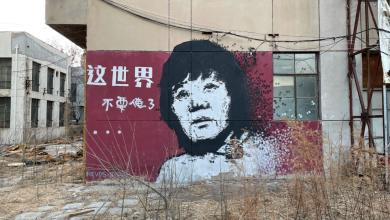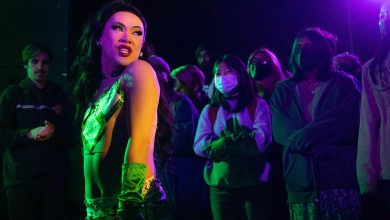The Super Bowl’s Ugly Truth
The Super Bowl has become a staple American holiday since its inception in 1967 when the Green Bay Packers beat the Kansas City Chiefs 35-10. Football has become a favorite American pastime in which schools and cities alike rally around their football team boosting school and hometown spirit to all time highs.
The National Football League, despite its standing as a non-profit organization, rakes in billions and billions of dollars in profit thanks to the Super Bowl. This year alone, the Super Bowl had an estimated 111.5 million viewers setting the record for the most watched television event in history. Not to mention the millions of tweets sent out, all the countless internet live streamers, and people physically present at the game.
On the day of the Super Bowl, America shuts down and gathers around the TV.
Regardless of whether or not you are an actual football fan or if you even know how the game is played for that matter, you’re probably watching the game in the comforts of your home, at a local sports bar, or at a friend or family’s Super Bowl party (even if your favorite team isn’t playing). You could be watching the Super Bowl for the much anticipated halftime shows, or you could be excited to see which companies outdo each other during the commercial breaks (which, by the way, cost a whopping $4 million dollars per 30 seconds).
There’s all this hype leading up to the Super Bowl and all news stations report on the best plays for hours after it ends, discussing all the coulda-shoulda-wouldas of the losing team.
However, there is an ugly truth behind the Super Bowl that is rarely talked about, and the statistics are staggering and heartbreaking.
The Super Bowl is the single largest sex trafficking event in the U.S.
I was deeply saddened and appalled when first learning about this last year. The disturbing reality is, hardly anybody talks about it. It’s all kept hush hush. News stations seemingly prioritize their stories by reporting more often on things such as the best plays during the game, the half-time show, and the new commercials rather than the increase of sex trafficking that takes place. Thus, this very serious issue doesn’t get the attention it needs and deserves.
Plus, one could argue that it may be viewers who don’t want to know the ugly truth behind the Super Bowl and prefer to remain blissfully ignorant.The reality is, people are excited during Super Bowl week and want to enjoy themselves. Who really wants to think about the atrocities committed during such an exciting time? Do people really want to face the truth and have their bubbles burst?
But people need to come to terms with the reality of sex-trafficking .
Just recently, the Associated Press reported that the FBI rescued 16 juveniles ranging from the ages of 13 to 17 who were reported missing by their families and forced to travel to the New York City area and into prostitution during the Super Bowl. Children.
Danielle Douglas is an advocate and sex trafficking survivor. She speaks out saying that some of the people who come to New Jersey don’t even come to watch the Super Bowl; they come to have sex with women, men, and/or children. Douglas says, “The Super Bowl is a huge, huge arena for sex trafficking.”
Sex trafficking is a grotesque form of human slavery involving people being held against their will and forced into prostitution in which they are engaging in sexual activities for payment in order to make money for the pimp who primarily processes the transactions.
Law enforcement takes extra steps to try to stifle sex trafficking as much as possible during this time. They teach their officers to look out for what may be signs of a woman being held against her will. Officials also make the effort to reach out to local businesses, like hotels, and request they immediately report any unusual behavior or possible signs of sex trafficking, especially if it involves girls that look like minors.
The Super Bowl in Miami in 2010 drew in as many as 10,000 prostitutes, many of which were children and sex trafficking victims.
As I came to research sex trafficking during the Super Bowl, this google search prediction came up and I felt my heart sink and my blood boil at the same time:
Sex trafficking at the super bowl…a myth? I was curious as to how this problem could be perceived as a myth so I clicked on it. I was hoping that it would be a joke or that google was just being weird with its search engine predictions. After all, for it to come up as one of the first results must mean that it’s a big thing and a lot of people have searched it.
One might not be surprised to find that the The Gospel Coalition has an article on why this pervasive problem at the Super Bowl is a myth.
In “FactChecker: Super Bowl Sex Trafficking and Other Myths,” Joe Carter talks about why there is no concrete evidence to support the claims that sex trafficking increases during Super Bowl time. It briefly mentions that yeah, sex trafficking is an overall issue we should be concerned about, but the important thing to remember is that it doesn’t increase during the Super Bowl.
This article goes on to claim that it’s important to know it’s also a myth that domestic violence against women goes up during the Super Bowl. Carter argues it’s all an exaggeration that men are more likely to beat their wives or girlfriends after their favorite sports team loses. However, the idea of sexual violence going up during Super Bowl time is not that far-fetched. The environment is very tense, a lot of emotions are heightened (especially if you’re a die-hard fan of whatever team is playing), and alcohol is very often factored into the mix. In fact, the National Bureau of Economics reports that losses in football games can lead to “an eight percent spike in the number of police reports of spousal abuse within a short time of the game.”
My main concern is why this article is SO intent upon making sure people think that sex trafficking is not really that big of a deal during the Super Bowl.
Having an article dedicated to making sure people believe that sex trafficking during the Super Bowl is just a myth, minimizes the graveness of the issue at hand.
Ugly consequences can come out of a seemingly harmless and joyous occasion. It’s important to raise awareness of this problem so that bystanders can know how to spot sex trafficking when it’s happening and be active in putting an end to it.
Here are some signs that sex trafficking is happening from the Human Trafficking Movie Project.




